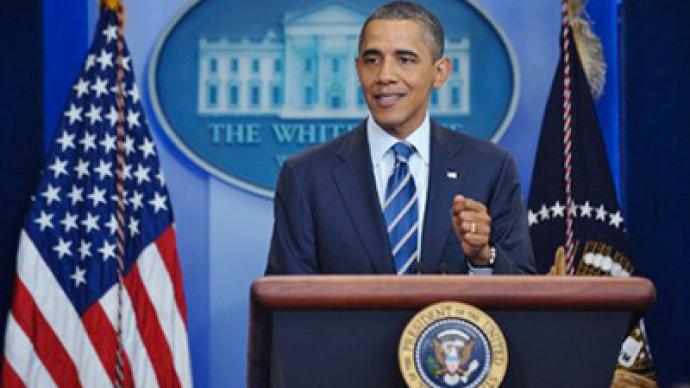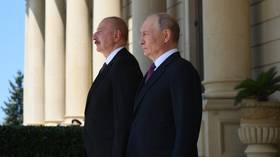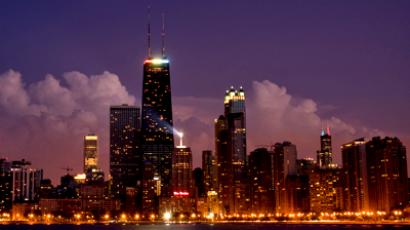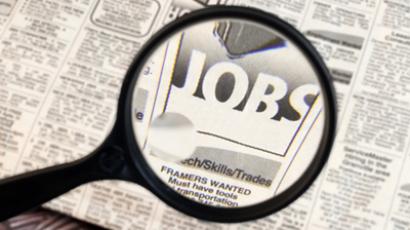US unemployment rises. Again.

The latest report from the Depart of Labor was issued today, and it was fairly disastrous for the American public. Unemployment, yet again, is on the rise in the US.
Previously analysts had previously predicted to Bloomberg News that 105,000 jobs would be created last month; the actual number fell alarmingly shy by over 90,000, however. The newest statistic from the Labor Department put unemployment at 9.2 percent for the month of June, a 0.1 percent raise from May’s figures. While that month saw 25,000 new jobs introduced in the country, only 18,000 were added in June. University of Maryland business professor Peter Morici tells the The Washington Times that, nation-wide, the actual statistic might be much larger. “Factoring in those discouraged workers and others working part-time but would prefer full-time employment, the unemployment rate is 16 percent,” he says. “Adding college graduates in low-skill positions like counter work at Starbucks, and the unemployment rate is closer to 20 percent.”“The economic recovery is simply not gaining steam,” he adds.Speaking from the White House’s rose garden Friday morning, President Barack Obama says America needs to get back to a place “where new jobs and opportunities are within reach,” but notes, however, that “we still have a long way to go.”The president says that more than two million new private sector jobs were added over the last year, though the recession has taken a toll that has cost much of those to be extinguished. Natural disasters, spikes in gas prices and state and local budget cuts have only hurt the employment level, he adds.In Minnesota where the state government has been shut down for a week now, The Land of 10,000 Lakes stands to become the Land of 25,000 Additionally Unemployed. That’s the number of state workers standing to lose their jobs, which would skyrocket the state’s unemployment rate from 6.6 to 7.6 percent.Paul Dales of Capital Economics tells the New York Times that “We are two years into a recovery and there is no improvement whatsoever.” “It is still as bad as it has ever been.”May saw an increase in unemployment as well as the statistic grew from April’s rate of 9.0 percent.To the Los Angeles Times, labor economist Heidi Shierholz says these last two months are, well, “really scary.”Nation-wide, governmental positions were slashed drastically in June as 39,000 people coast-to-coast were laid-off. May saw 28,000 local government and 2,000 state workers losing their jobs.Pierre Ellis, senior economist at Decision Economics, tells Reuters that "The message on the economy is ongoing stagnation.” The unemployment rate has been on the rise since March, when only 8.8 percent of Americans filed themselves as jobless. Last month’s statistic puts unemployment at its highest since December 2010.Less than four years ago, the unemployment figure in America was at only 4.4 percent.Statistics from the Department of Labor also note that the average workweek declined last month to 34.3 hours across the country. Average hourly earnings also dropped by one cent.Government officials said yesterday that jobless benefit claims had declined for the week, though they remained above 400,000 for the thirteenth consecutive week. Even if the president says a recovery is on the way, not everyone is eating it up. Economist Les Leopold tells RT that "Obama's excuses don't mean anything." He says that during the last three years America has experienced a "gigantic implosion," and that the "collective insanity in Washington" isn't going to be able to fix anything. For a solution, Leopold suggets revisiting America's past for starters."When we sat on finance, I mean really regulated it from the mid 1940s all the way to 1975 or so, and when we really had high taxes on the super rich, there was no financial crisis," he says. "None!" Labor journalist Mike Elk tells RT that as American jobs are being moved overseas, politicians view human capital as "really another commodity.""They have no real desire for humans," he says.As jobs move out of America and overseas, Elk says that job creation is not the focal point of American lawmakers or businessmen right now, but certainly ought to be. In the meantime, says Elk, the idea is "to keep as few workers employed as possible and keep them working as much as possible and for as little as possible."














